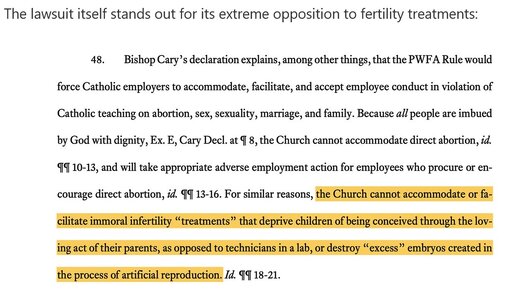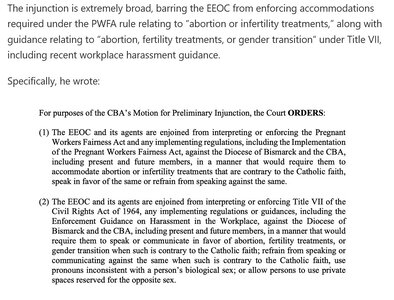- Messages
- 34,945
"A federal judge in North Dakota issued an injunction on Monday blocking the Equal Employment Opportunity Commission from protecting any employees of any members of a nationwide Catholic association who are seeking time off or other accommodations under the Pregnant Workers Fairness Act for an abortion or in vitro fertilization treatment.
U.S. District Judge Daniel Traynor, a Trump appointee to the federal court in North Dakota, issued the religion-infused preliminary injunction to partially block enforcement of an EEOC rule implementing the 2022 law, along with related implementation of Title VII of the Civil Rights Act of 1964, as to the Catholic Benefits Association and its members — current or future — nationwide.
The order covers more than 8,000 employers — including thousands of churches — across the country.
The PWFA was passed in December 2022 and is supposed to protect covered workers from discrimination on the basis of “pregnancy, childbirth, or related medical conditions” by, in part, requiring employers to provide employees with reasonable accommodations. The EEOC proposed its implementing rule for the PWFA in August 2023, stating in part that abortion and fertility treatment, including IVF, are covered by the law’s protections. That rule, which does not relate to insurance coverage, went into effect in June. ..."


